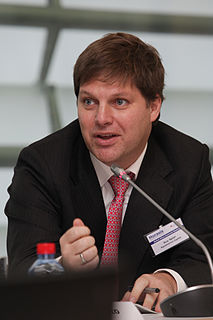A Quote by Craig Newmark
We don't think of ourselves as do-gooders or altruists. It's just that somehow we're trying our best to be run with some sense of moral compass even in a business environment that is growing.
Related Quotes
The foundation of leadership is your own moral compass. I think the best quality leaders really know where their moral compass is. They get it out when they are making decisions. It's their guide. But not only do you have to have a moral compass and take it out of your pocket, it has to have a true north.
We're all products of our environment, and I suspect that strength of will - the feeling, "I'm going to be able to do whatever you put in front of me" - is honed in an environment where not everything is easy. Ironically, growing up in that environment, you don't have a sense of aggrievement or entitlement. You just have a sense of overcoming.
I think we ripple on into others, just like a stone puts its ripples into a brook. That, for me, too, is a source of comfort. It kind of, in a sense, negates the sense of total oblivion. Some piece of ourselves, not necessarily our consciousness, but some piece of ourselves gets passed on and on and on.
Rather take that moral sense and apply it to the particulars of a job that is going to test those ethical and moral precepts differently than if you're a professor, or a business person, or a dad. And if I were not comfortable with the judicious use of our military to protect the American people, than I shouldn't have run for president. And having said that, I do think that the wisdom of a [Martin Luther] King or a [Mahatma] Gandhi can inform my decisions.



































